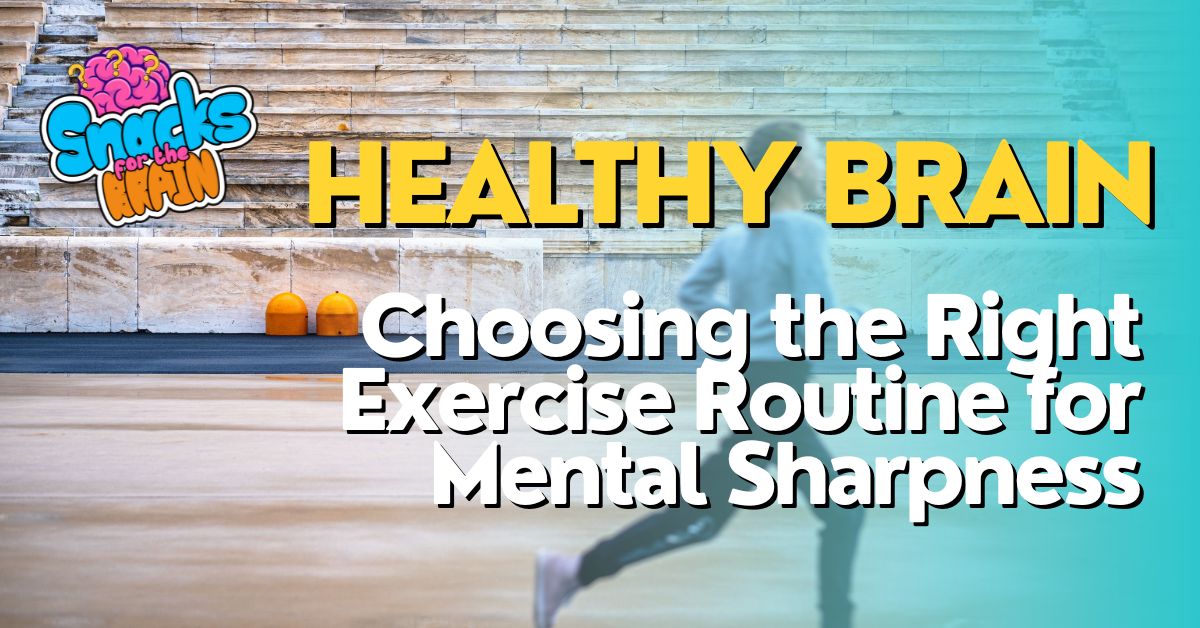The brain is a crucial organ in the human body, controlling cognitive processes, emotional responses, and physical actions. Maintaining brain health is paramount for preserving cognitive abilities, emotional stability, and overall life quality. Scientific studies have demonstrated that engaging in brain-stimulating activities, particularly travel and novel experiences, can positively influence brain health.
Exposure to new environments, acquisition of new skills, and challenging established perceptions promote neuroplasticity and enhance cognitive function. This article examines the effects of travel and new experiences on brain health, discusses the advantages of integrating these activities into daily routines, and explores how such experiences stimulate the brain to foster overall well-being.
Key Takeaways
- Brain health is crucial for overall well-being and quality of life.
- Travel can have a positive impact on brain health by providing new experiences and stimulating the mind.
- New experiences, such as those gained through travel, can benefit brain health by promoting cognitive flexibility and creativity.
- Travel and new experiences stimulate the brain by exposing it to unfamiliar environments and challenges.
- Neuroplasticity plays a key role in brain health and can be enhanced through travel and new experiences, leading to improved cognitive function.
The Impact of Travel on Brain Health
Stepping Out of Our Comfort Zones
Travel often involves stepping out of our comfort zones, which can help to challenge our perceptions and promote personal growth. Research has shown that travel can also reduce stress and improve mental well-being, which are important factors in maintaining brain health.
Promoting Brain Health and Well-being
Whether it’s exploring a new city, hiking in nature, or immersing oneself in a different culture, travel can provide a valuable opportunity to promote brain health and overall well-being.
The Power of Novelty
The exposure to novel stimuli that comes with traveling can help to stimulate the brain and promote cognitive flexibility. By constantly processing new information, our brains are able to stay active and engaged, leading to a range of benefits for our mental and emotional health.
The Benefits of New Experiences for Brain Health

In addition to travel, engaging in new experiences can also have a positive impact on brain health. Whether it’s trying a new hobby, learning a new skill, or meeting new people, exposing ourselves to unfamiliar experiences can help to promote neuroplasticity and cognitive function. When we engage in new activities, our brains are forced to adapt and learn, which can help to strengthen neural connections and promote overall brain health.
Furthermore, trying new experiences can help to keep the brain active and engaged, which is important for maintaining cognitive function as we age. Research has shown that engaging in new experiences can also improve memory and cognitive abilities, making it an important aspect of promoting brain health. In addition to travel, engaging in new experiences can also have a positive impact on brain health.
Whether it’s trying a new hobby, learning a new skill, or meeting new people, exposing ourselves to unfamiliar experiences can help to promote neuroplasticity and cognitive function. When we engage in new activities, our brains are forced to adapt and learn, which can help to strengthen neural connections and promote overall brain health. Furthermore, trying new experiences can help to keep the brain active and engaged, which is important for maintaining cognitive function as we age.
Research has shown that engaging in new experiences can also improve memory and cognitive abilities, making it an important aspect of promoting brain health.
How Travel and New Experiences Stimulate the Brain
Both travel and new experiences stimulate the brain in unique ways. When we travel to new destinations or engage in unfamiliar activities, our brains are constantly processing new information and adapting to new environments. This exposure to novel stimuli helps to promote neuroplasticity, which is the brain’s ability to reorganize itself by forming new neural connections.
By challenging our perceptions and stepping out of our comfort zones, we force our brains to adapt and learn, which can help to strengthen cognitive function. Additionally, travel and new experiences often involve learning about different cultures, trying new foods, and engaging with unfamiliar customs, all of which can help to broaden our perspectives and promote cognitive flexibility. Overall, both travel and new experiences provide valuable opportunities to stimulate the brain and promote overall brain health.
Both travel and new experiences stimulate the brain in unique ways. When we travel to new destinations or engage in unfamiliar activities, our brains are constantly processing new information and adapting to new environments. This exposure to novel stimuli helps to promote neuroplasticity, which is the brain’s ability to reorganize itself by forming new neural connections.
By challenging our perceptions and stepping out of our comfort zones, we force our brains to adapt and learn, which can help to strengthen cognitive function. Additionally, travel and new experiences often involve learning about different cultures, trying new foods, and engaging with unfamiliar customs, all of which can help to broaden our perspectives and promote cognitive flexibility. Overall, both travel and new experiences provide valuable opportunities to stimulate the brain and promote overall brain health.
The Role of Neuroplasticity in Brain Health and Travel
Neuroplasticity plays a crucial role in promoting brain health, and both travel and new experiences can help to facilitate this process. Neuroplasticity refers to the brain’s ability to reorganize itself by forming new neural connections in response to learning or experience. When we engage in activities that challenge our perceptions or expose us to novel stimuli, we are promoting neuroplasticity by forcing our brains to adapt and learn.
This process is essential for maintaining cognitive function and promoting overall brain health. Traveling to new destinations or trying new experiences provides valuable opportunities to promote neuroplasticity by exposing ourselves to unfamiliar environments and challenging our existing neural connections. By promoting neuroplasticity through travel and new experiences, we can help to maintain cognitive function and promote overall well-being.
Neuroplasticity plays a crucial role in promoting brain health, and both travel and new experiences can help to facilitate this process. Neuroplasticity refers to the brain’s ability to reorganize itself by forming new neural connections in response to learning or experience. When we engage in activities that challenge our perceptions or expose us to novel stimuli, we are promoting neuroplasticity by forcing our brains to adapt and learn.
This process is essential for maintaining cognitive function and promoting overall brain health. Traveling to new destinations or trying new experiences provides valuable opportunities to promote neuroplasticity by exposing ourselves to unfamiliar environments and challenging our existing neural connections. By promoting neuroplasticity through travel and new experiences, we can help to maintain cognitive function and promote overall well-being.
Tips for Incorporating Travel and New Experiences into Daily Life

Exploring Local Opportunities
Taking a different route on your daily commute or exploring a new neighborhood can provide opportunities for exposure to novel stimuli without requiring extensive time or resources.
Discovering New Hobbies and Skills
Trying a new hobby or learning a new skill can help to promote neuroplasticity and cognitive function without the need for extensive travel. Engaging with different cultures through local events or trying new cuisines can also provide valuable opportunities for exposure to unfamiliar experiences without leaving your own community.
Promoting Brain Health and Well-being
By seeking out opportunities for travel and new experiences in our daily lives, we can promote brain health and overall well-being.
Prioritizing Brain Health through Travel and New Experiences
In conclusion, prioritizing brain health is essential for maintaining cognitive function, emotional well-being, and overall quality of life. Traveling to new destinations and engaging in unfamiliar experiences provide valuable opportunities to stimulate the brain and promote neuroplasticity. By challenging our perceptions, stepping out of our comfort zones, and exposing ourselves to novel stimuli, we can help to maintain cognitive function and promote overall well-being.
Additionally, incorporating travel and new experiences into daily life doesn’t always require extensive planning or resources; there are many simple ways to seek out opportunities for exposure to unfamiliar stimuli in our own communities. By prioritizing brain health through travel and new experiences, we can help to maintain cognitive function and promote overall well-being for years to come. In conclusion, prioritizing brain health is essential for maintaining cognitive function, emotional well-being, and overall quality of life.
Traveling to new destinations and engaging in unfamiliar experiences provide valuable opportunities to stimulate the brain and promote neuroplasticity. By challenging our perceptions, stepping out of our comfort zones, and exposing ourselves to novel stimuli, we can help to maintain cognitive function and promote overall well-being. Additionally, incorporating travel and new experiences into daily life doesn’t always require extensive planning or resources; there are many simple ways to seek out opportunities for exposure to unfamiliar stimuli in our own communities.
By prioritizing brain health through travel and new experiences, we can help to maintain cognitive function and promote overall well-being for years to come.
If you’re interested in improving your brain health through new experiences, you may also want to check out this article on Unlocking Your Brain’s Full Potential: Tips to Increase Intelligence and Memory. This article provides valuable insights and tips on how to enhance your cognitive abilities and memory, which can complement the benefits of travel and new experiences for brain health.
FAQs
What are the benefits of travel for brain health?
Traveling can provide a range of benefits for brain health, including reducing stress, stimulating the brain through new experiences, and promoting cognitive flexibility and creativity.
How do new experiences benefit the brain?
New experiences can stimulate the brain by creating new neural pathways and connections. This can help improve cognitive function and memory, as well as promote overall brain health.
Can travel help reduce the risk of cognitive decline?
Engaging in new experiences, such as travel, can help reduce the risk of cognitive decline as we age. It can also help improve cognitive reserve, which is the brain’s ability to withstand damage.
What role does stress reduction play in brain health during travel?
Traveling to new places and experiencing new things can help reduce stress, which in turn can have a positive impact on brain health. Chronic stress has been linked to negative effects on the brain, so reducing stress through travel can be beneficial.
How does travel promote cognitive flexibility and creativity?
Experiencing new cultures, languages, and environments during travel can challenge the brain to think in different ways and adapt to new situations. This can promote cognitive flexibility and creativity, which are important for overall brain health.






